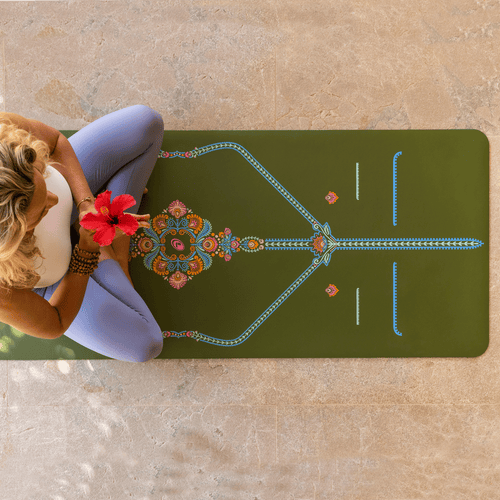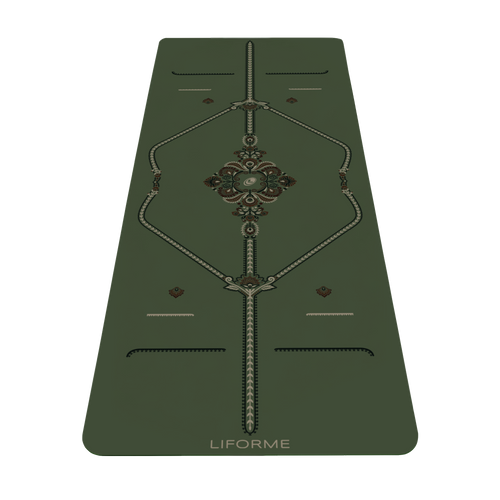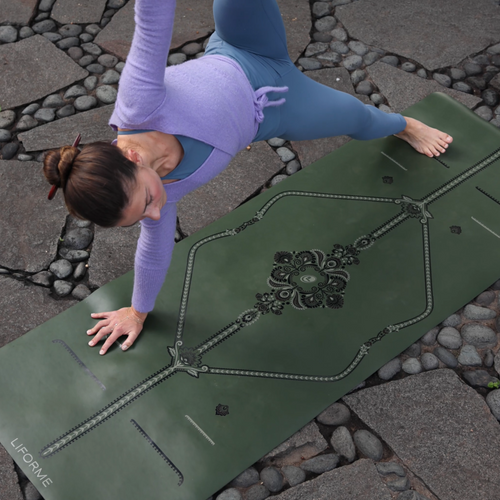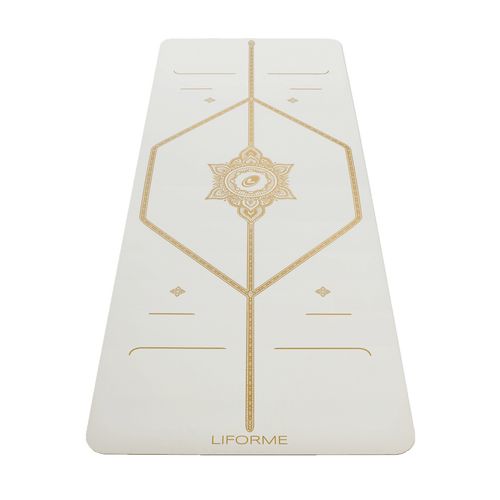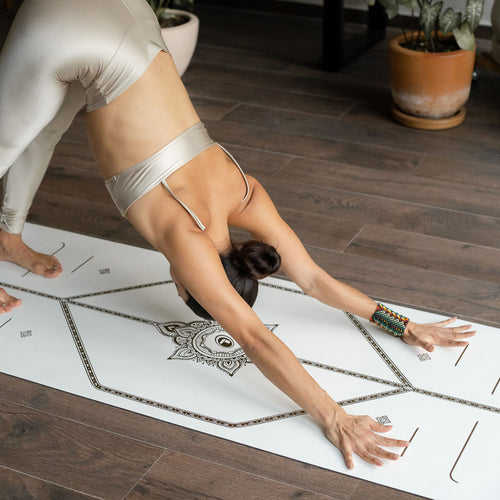Do you see the Cow Face in the shape of this pose? In Light on Yoga, B.K.S. Iyengar writes that a Gomukha is also a musical instrument that is wide on one end and narrow on the other.
Gomukhasana gets into some very hard-to-stretch areas of your body, including the outer thighs, shoulders, chest, and back. Props, including a strap and something to sit on, can be very helpful in getting the most benefit from this posture.
Cow Face Pose Basics
Sanskrit Meaning: Go (Cow) Mukha (Face) Asana (Pose)
Yoga Level: Intermediate
Pose Type: Seated
Benefits of Cow Face Pose:
• Lengthens the outer thighs and glutes.
• Stretches the latissimus dorsi muscles of your back.
• Stretches the deltoid muscles of your shoulders.
• Stretches the pectoral muscles of your chest.
• Stretches the triceps muscles on the backs of your arms.
Beginner Tips
1. Use a Strap
Many people find the prospect of their hands meeting behind their backs daunting. Instead of skipping that part of the pose, use a strap, towel, or belt between your hands to create the connection. This gives your body a path to follow and begins to open the tight areas of the chest, shoulders, and back.
2. Stack Your Knees
If it’s difficult to align both knees at your midline, try using a blanket or block under your butt to lift your seat.
3. Keep Your Head Up
The pressure from your arms can push your head forward. Try pressing your head back into your arms to keep your neck aligned with your spine.
4. Each Side is Different
It may be easier to join your hands and/or stack your knees on one side than the other. That’s totally fine. Try to notice the difference without judgment.
Step-By-Step Instructions
1. Begin on your hands and knees.
2. Move your right knee to your midline (Central Line on your Liforme mat)
3. Cross your left knee behind your right knee.
4. Separate your right foot toward the left and your left foot toward the right.
5. Walk your hands back to settle your butt in the space between your feet. Take a folded blanket or a block under your seat to lift it if it doesn’t come to the floor.
6. Activate both feet to engage your legs.
7. Your right knee is on top, so that means your right arm lifts toward the ceiling. If you need a strap, take it in your right hand now.
8. Bend your right elbow and release your forearm behind your head. Your elbow remains pointed at the ceiling.
9. Bend your left elbow and take your left hand up the centre of your back. Your left elbow points at the floor.
10. If your hands meet behind your back, clasp them together. If you have a strap in your right hand, take hold of it with your left hand too.
11. Keep your head up and your gaze toward the horizon.
12. After several breaths, release your clasp and return to your hands and knees to repeat the pose on the other side.
Preparatory Pose

Puppy Pose opens up your chest and shoulders in preparation for Cow Face.

Do Down Dog Split to stretch your back, chest, and hips, legs
Counter Pose

Cat-Cow Stretches help release any tension from the back. You can do them before, after, and in between Cow Face Pose.
Why We Practice Cow Face Pose
Yoga is all about accessing parts of your body that are tight and underutilized. Gomukhasana exemplifies this with its unique form and alignment. If you are new to yoga, this is probably not a position you’ve done before. That makes it challenging and worthwhile.
















